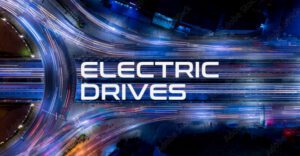- Stellantis is set to join the growing list of automakers releasing North American-bound EVs with the North American Charging Standard (NACS) type port out of the box, in a move which is set to make the public charging process even more seamless for drivers of all EV brands.
- The North American Charging Standard was originally created by Tesla, but is now set to become the default EV charging port for the North American market.
- Stellantis joins OEMs who have already adopted or are in the process of adopting NACS, including General Motors, Hyundai, BMW Group, and more.
Stellantis makes the switch to Tesla’s North American Charging Standard
The rollout of NACS into Stellantis’ EV range will begin in 2026 with existing electric models on the market, such as the Jeep Wagoneer S and Dodge Charger Daytona. Upcoming new EVs from the group, like the Jeep Recon, will also adopt the NACS port.
Adoption of the North American Charging Standard into these EVs will grant them seamless access into the Tesla Supercharger network across North America, with an increasing number of charging points under this network being available to all cars with NACS compatibility – not just Tesla-branded cars. This will significantly increase the fast-charging options available for Stellantis EV owners, and bring them into line with other NACS-led EVs from other brands which already have access to the Tesla Supercharger network.
It’s also likely that Stellantis EVs already on the road will be granted compatibility with the standard, with the group noting that additional details on ‘adapter information’ will be shared at a later date. Last week, Volkswagen rolled out a similar NACS adapter in North America for existing ID.4 and ID. Buzz models, granting the duo access to many Tesla Supercharger locations.
Despite its name, the North American Charging standard is also be adopted in other areas of the world. From 2027, select Stellantis EVs sold in South Korea and Japan will also adopt the NACS port. This mirrors a move by new automaker, Sony-backed AFEELA, which will use the NACS port for examples of its future EV destined for the Japanese market.


